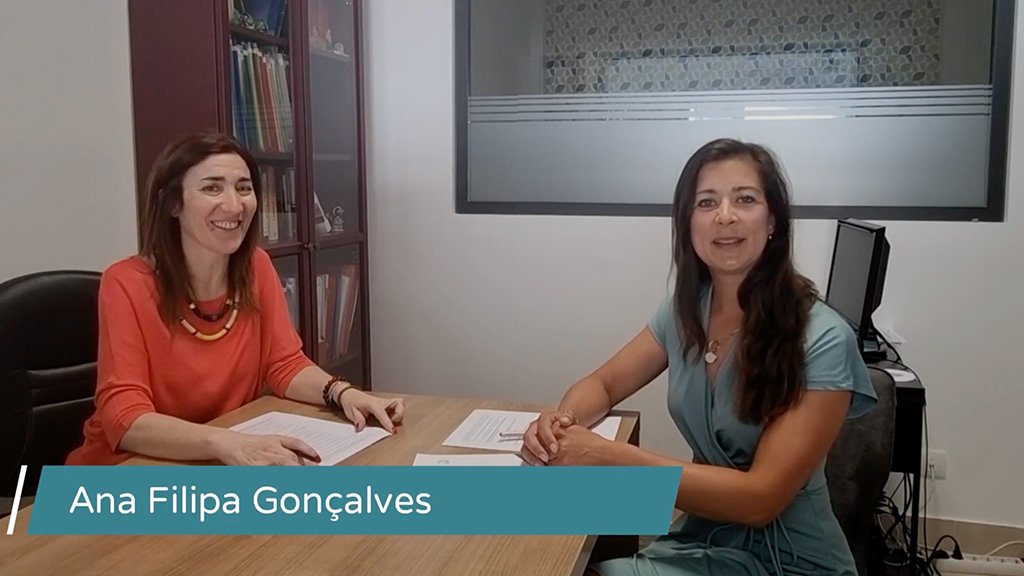A solicitor has a key role in buying and selling processes in Portugal. They are normally involved right from the beginning or even before a buying process. The tasks in the buying process include, but are not limited to, analyzing the current situation, advising on procedures, and obtaining the right documentation in order to execute the purchase deed.
Check out our Key Talks video about ´How to Buy Property in Portugal, Step by Step´. We are going to learn about the role of solicitors in Portugal and we go through the buying process with the solicitor based in Castelo Branco; Ana Filipa Gonçalves.

The role of solicitors in Portugal
A Solicitador in Portugal has a similar role to a solicitor in other common law countries, but with some differences. The role of a Solicitador in Portugal includes:
- Providing legal advice: Solicitors in Portugal provide legal advice to clients on various legal matters such as real estate, inheritance, and commercial law.
- Drafting legal documents: Solicitors in Portugal draft legal documents such as contracts, wills, and other legal instruments.
- Providing extrajudicial services: Solicitors in Portugal also provide extrajudicial services such as debt recovery, property management, and company registration.
- Collaborating with other legal professionals: Solicitors in Portugal collaborate with other legal professionals such as lawyers and notaries to provide comprehensive legal services to clients.
- Overall, a Solicitador in Portugal plays an important role in providing legal services to individuals and businesses, and their work is regulated by the Chamber of Solicitors, a professional organization that oversees the profession and sets ethical and professional standards.
What is the main difference between solicitors and lawyers in Portugal?
In Portugal, the terms “solicitor” and “lawyer” have distinct meanings and functions.
A Solicitador in Portugal is a legal professional who provides legal advice and assistance to clients in non-litigious matters, such as drafting contracts, conveyancing, and debt recovery. They also have the authority to represent clients in certain types of court proceedings, such as civil proceedings.
On the other hand, a lawyer in Portugal, who is known as “Advogado”, is a legal professional who is authorized to provide legal advice and assistance to clients in both non-litigious and litigious matters. This includes providing legal representation to clients in court, drafting legal documents, and providing legal advice and guidance.
While both Solicitors and Advogados in Portugal are legal professionals who play an important role in providing legal services to clients, their roles and responsibilities are distinct. Solicitors generally focus on non-litigious matters, while Advogados have a wider range of functions, including legal representation in court.

What documents does a buyer need to buy a property in Portugal?
When buying a property in Portugal, the following documents are typically required from the buyer:
- Passport or other identification document: Buyers will need to provide a valid identification document, such as a passport or ID card.
- Fiscal number (Número de Identificação Fiscal or NIF): Buyers will need to obtain a fiscal number, which is a unique tax identification number in Portugal. This number is required to purchase property in Portugal and to pay taxes.
- Proof of address: Buyers will need to provide proof of their current address, such as a utility bill or bank statement.
- Bank statement: Buyers will need to provide a bank statement or other proof of funds to show that they have sufficient funds to purchase the property.
- Power of attorney (if applicable): If the buyer is unable to attend the closing in person, they may need to provide a power of attorney to authorize someone else to sign on their behalf.
The specific documents required may vary depending on the type of property and the region in which it is located.
a) Is the same for a non-european citizen?
Non-European citizens who wish to buy property in Portugal will need to provide the same documents as European citizens. However, there may be additional requirements for non-EU citizens, such as obtaining a visa or residency permit.
Non-EU citizens who wish to stay in Portugal for more than 90 days must apply for a visa or residency permit. This can be done at a Portuguese embassy or consulate in the buyer’s home country.
Non-EU citizens who are planning to buy property in Portugal may be eligible for a “golden visa” program, which offers residency in Portugal to individuals who invest a certain amount of money in Portuguese real estate. The specific requirements and application process for the golden visa program can vary depending on the amount of investment and other factors.
What documents does a seller need to sell their property in Portugal?
When selling a property in Portugal, the following documents are typically required from the seller:
- Property title deed (Escritura): This is the official document that proves ownership of the property or Certificate of land registration (Certidão de Teor): This is an official document that provides information about the land and its ownership.
- Property registration certificate (Caderneta Predial): This is an official document that provides information about the property, such as its location, size, and tax identification number.
- Valid identification document: The seller will need to provide a valid identification document, such as a passport or ID card.
- NIF: The seller will need to provide a fiscal number, which is a unique tax identification number in Portugal.
- Proof of ownership: The seller will need to provide proof that they are the legal owner of the property.
- Up-to-date tax payments: The seller will need to provide proof that all taxes related to the property have been paid up to date.
- Utility bills: The seller will need to provide proof that all utility bills related to the property, such as water and electricity bills, have been paid up to date.
- Power of Attorney (Procuração): If the seller is unable to attend the closing, they may grant a power of attorney to a trusted person who can act on their behalf.
The specific documents required may vary depending on the type of property and the region in which it is located.
a) Rustic property:
If the property being sold is a rustic property (a property located in rural areas or outside urban areas), in addition to the documents mentioned earlier, the following documents may also be required:
- For regions without Cadaster: Topographic plan or land survey report: This is a document that provides information about the boundaries of the property and its characteristics.
Again, the specific documents required may vary depending on the location and characteristics of the rustic property.
b) Urban property:
If you’re selling an urban property in Portugal, in addition to the documents mentioned earlier, the following documents may also be required: Here are some of the essential documents:
- Energy Certificate (Certificado Energético) : This certificate is mandatory for all properties in Portugal, and it indicates the energy efficiency rating of the property.
- Habitation License (Licença de Utilização) or exemption of license: This document proves that the property meets the necessary safety and habitability standards.
- Tax Identification Number (Número de Identificação Fiscal) : You will need a tax identification number to complete the transaction and pay the associated taxes.
It’s important to note that these documents may vary depending on the specific circumstances of the sale.
What are the steps of the normal buying procedure after the seller and buyer agree on the price?
The steps involved in a typical buying procedure after the seller and buyer agree on the price of a property in Portugal are as follows:
- Promissory Contract (Contrato-Promessa de Compra e Venda): The first step is to sign a promissory contract, which is a legally binding agreement between the buyer and the seller. This contract outlines the terms and conditions of the sale, including the purchase price, payment terms, and deadlines.
- Deposit Payment (Sinal) : After signing the promissory contract, the buyer is required to pay a deposit, which is usually around 10% of the purchase price. This deposit serves as a guarantee that the buyer intends to complete the transaction.
- Due Diligence: Before completing the transaction, the buyer should conduct a thorough due diligence process to ensure that the property is free of any legal or financial issues. This may include verifying the ownership status, checking for any encumbrances or debts, and reviewing any relevant permits or licenses.
- Final Payment (Escritura) : The final step in the buying procedure is the completion of the transaction, which is done by signing the final contract (Escritura de Compra e Venda) in the presence of a notary public. The buyer is required to pay the remaining balance of the purchase price, as well as any associated taxes and fees.
- Registration: Finally, the property must be registered with the Land Registry (Registo Predial), which is responsible for maintaining the official records of property ownership in Portugal.
It’s important to note that the buying procedure may vary depending on the specific circumstances of the transaction.
What are the costs of buying property?
When buying a property in Portugal, there are several costs involved that go beyond the purchase price. Here are the main costs to consider:
- Transfer Tax (Imposto Municipal sobre as Transmissões Onerosas de Imóveis or IMT): This tax is paid by the buyer and is based on the purchase price and the property’s location, type, and intended use. The rate can range from 0% to 8%, with a maximum rate of 6% for residential properties.
- Stamp Duty (Imposto do Selo) : This tax is also paid by the buyer and is based on the purchase price. The rate is 0.8% of the purchase price, with some exemptions for certain types of properties or buyers.
- Notary and Registration Fees: These fees are paid by the buyer and cover the costs of the notary public and the Land Registry. The exact amount depends on the amount of deeds and registrations to be done.
- Legal Fees: Hiring a lawyer or a solicitor to assist with the buying process is not mandatory, but it is highly recommended. The legal fees can vary depending on the complexity of the transaction.
- Mortgage Fees: If the buyer is financing the purchase with a mortgage, there may be additional fees associated with the loan, such as appraisal fees, bank charges, and mortgage registration fees.
- Property Inspection and Survey Fees: It’s also advisable to conduct a property inspection and survey to identify any potential issues with the property. These fees can vary depending on the size and complexity of the property, but they typically range from a few hundred to a few thousand euros.
It’s important to note that these costs are estimates and may vary depending on the specific circumstances of the transaction.
Check out our new arrivals!


